The need for skilled developers and designers within the field of software is growing – and no wonder, as we increasingly live our lives connected to apps, programs and websites. If you are thinking of moving into this fast-paced career, what skills and attributes will you need?
Data recruitment specialists Agile Recruit match skilled software developers with forward-thinking employers to work on exciting projects. They say specific skills are crucial, and it is right to say that anyone considering entering this field must hold an essential set of skills. But you’ll also need to remain current with your skillset, continually looking to the next program that companies will be using to build apps and other platforms.
What software job roles are companies looking to fill?
Working in software means looking for roles such as:
- AR/VR developer and engineer – augmented reality and virtual reality are two specialist areas that have seen an increase in vacancies of over 1000% globally.
- Gaming developers – in an industry estimated to be worth $155 billion, gaming developers are in great demand.
- Computer vision engineer – with the focus on machine learning, developers with these skills solve a range of real-life issues with computer visioning.
- Security developer – data security is essential but with compliance and legal issues weighing heavily on firms, hiring security systems developers is likely to continue rising.
- Blockchain engineers – this where specialists create and implement solutions that utilise a unique technology known as blockchain. Information is shared across the web without being copied. Demand for this role within the software industry has increased by 9%.
These are just five examples of roles within software. There are many others, some of which are highly specialised and demand a high level of both skill and experience such as full-stack engineer, or backend and frontend developers.
Starting off a software career
Like all career moves, understanding the basic skills you need to get started is critical.
Once you have a junior role in your chosen field, you can build vital experience whilst also upskilling in the latest programming or coding techniques. This means you can push your career forward into senior roles.
The basics skills for anyone seeking a career in software are:
- Computer programming and coding – JavaScript is the most popular programming language and is the primary language for building web pages. There are others, such as Python and PHP. You’ll need to choose the language that is most commonly used in the area you want to work.
- Mathematical aptitude – you’ll need to have a mathematical and scientific approach to test theories and analyse results objectively. You’ll also need to be accurate.
- Problem-solving – working through complex issues, you’ll need to have a range of solutions to experiment with. There are rarely manuals on how to do things within software development because you are creating it.
- Multi-tasking – with several projects and streams to manage, you’ll need to be able to multitask effectively.
- Attention to detail – being able to maintain a high level of concentration is vital in this field.
- Communication and teamwork – larger projects are often undertaken across several teams, with a mix of specialities and so being able to communicate and work effectively as part of a team are also crucial.
A fast-paced career and industry
You’ll also need to stay ahead and in touch with current trends within the industry, as well as self-developing skills. The software industry is a fast-changing industry which rarely remains the same for long. In essence, this is what you may find attractive about it as well as the difference and improvements you can make to programs and apps.
Building a call center screen monitoring scorecard isn’t troublesome. Preferably, you’d acquire your QA expert group to work together with specialists (your representatives, chiefs, and administrators will be bound to partake in the call monitoring measure on the off chance that they are allowed the chance to add to the making of your scorecard measurements).



